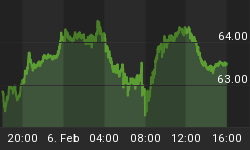Sentiment Speaks To Investor Confidence, Not The VIX

The endless chatter about a low VIX being indicative of investor complacency continues this week. As we noted in a May 29 "stop wasting energy on the VIX" article, the VIX measures expected volatility, not fear or investor sentiment. Is investor sentiment in highly complacent or overconfident territory? The facts say the answer is no. From The Wall Street Journal:
Last week, 39% of respondents to a long-running weekly survey from the American Association of Individual Investors said they were bullish about stocks. That is well above readings of just over 27% in both February and April, when violence in Ukraine weighed on sentiment. But it is far from giddy. In fact, it is in line with the average since the poll's inception in 1987. That doesn't bother close observers of the public mood as markets continue to notch records. "All else being equal, I'd rather see AAII sentiment at average," says John Buckingham, chief executive of AFAM Capital. Mr. Buckingham's observation seems to be validated in a recent paper by Charles Rotblut, a vice president at AAII. High neutral readings in the survey have been associated with 12-month stock-market performance that is well above average.
Not only are investors far from "giddy", but current sentiment readings align with bullish outcomes in the equity market looking out twelve months.
Economy Closer To Normal State

Can we find logical reasons for lower volatility in the equity markets? Yes, two major improvements can be found in lower systemic risk in Europe and an improving economy in the United States. From Reuters:
The U.S. macroeconomy is much closer to a normal state than it has been in five years, a Federal Reserve official said on Monday, adding that weak labor markets and low inflation are what is keeping accommodative monetary policy in place. "The FOMC (Federal Open Market Committee) is much closer to its macroeconomic goals than it has been in the past five years," said James Bullard, president of the St. Louis Federal Reserve Bank, speaking at a conference in Palm Beach, Florida. "The committee now faces a classic challenge concerning the appropriate pace of monetary policy normalization," he said. Labor markets do not seem to be fully recovered, Bullard said, and inflation is low though moving back to target.
Improvement, But Not Enough To Spook The Fed
What could bring volatility back to the stock market? If the economic data points to significantly higher growth or concerning levels of inflation, the Fed could be forced to raise interest rates, which could bring volatility back into the equity equation. For now, the current read from the market is that significant Fed action is not imminent. From The Wall Street Journal:
"There's just nothing right now that's causing investors to be unduly pessimistic," said Gordon Charlop, managing director at Rosenblatt Securities. "All the data is indicating that we're getting a little bit better but [growth isn't strong enough] that it's going to spook the Fed into doing anything too significant."
Investment Implications - Recent Breakouts Are Holding
As noted on June 8, recent consolidation patterns have broken in the favor of stocks. As of Monday at noon EDT, the S&P 500's May 27 push above previous resistance is holding in favor of the economic and stock market bulls.

Monday's session presented little in the way of new information to impact our allocation of stocks (SPY), leading sectors (XLK), and bonds (TLT). With summer in full swing and a light economic calendar, stocks could post another low volume week. The next significant U.S. economic announcements arrive Thursday in the form of weekly jobless claims and retail sales.















